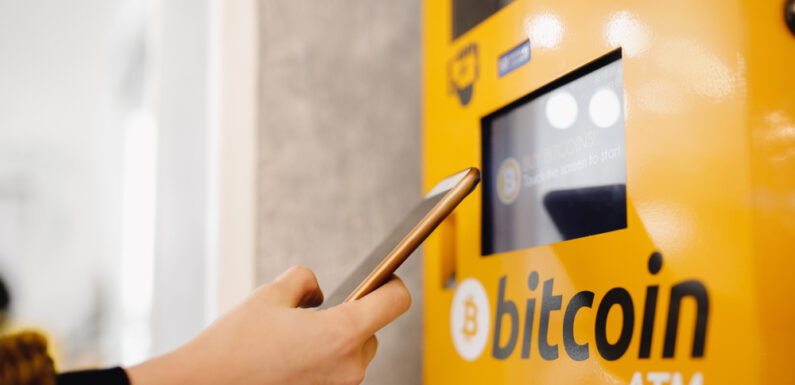
A recent study by the blockchain analytics platform TRM Labs showed that cash-to-crypto transactions facilitated by crypto ATMs have surged since 2019. According to the report, criminal elements utilized crypto ATMs to move illicit funds, with roughly $160 million processed already.
Growing Global Concerns on Crypto ATMs
The recently released report highlights the growing concern that law enforcement organizations all around the world have regarding the expansion of automated teller machines that accept cryptocurrencies. These machines, which make it possible to trade fiat currency for digital assets, have become an increasingly important focus of investigation in recent years. Over $30 million worth of illegal cash-to-crypto transfers were sent to known bogus addresses using these services in 2023 alone.
Recent Regulatory Actions and Crackdowns
Earlier this month, Germany’s financial watchdog, BaFin, carried out an operation during which it seized thirteen such machines and confiscated over 250,000 euros (roughly $280,000) in cash. Meanwhile, this approach is part of a larger trend of recent actions taken by regulatory agencies.
The authorities in the United Kingdom removed 26 Bitcoin ATMs in 2023, while in the United States, officials pulled down 18 Bitcoin ATMs in Texas and more than 50 Bitcoin ATMs in Ohio. Despite all of these efforts, the difficulties continue to exist.
Criminal organizations continue to use cryptocurrencies to speed up international transactions by taking advantage of the inherent weaknesses of cryptocurrency-automated teller machines. Two such weaknesses are that these machines use cash, and there are no severe face-to-face verification or account control mechanisms in place.
Crypto ATMs Complaint Statistics and the Financial Impact
According to the survey, out of the 15,000 complaints that were received in the previous year, individuals aged sixty and above were affected by losses of nearly $1 billion associated with digital asset fraud. In addition, almost 2,000 cases, or 13% of the fraud cases, were linked to Bitcoin ATMs.
These findings highlight the major significance that these machines play in fraudulent activities involving digital assets. Since May, regulatory activities in the United States have resulted in the removal of more than 1,000 crypto ATMs.
Despite these regulatory actions, the United States continues to hold the position of a global leader in terms of the number of crypto ATMs, with more than 31,000 devices still in operation across the country.
However, a 17-fold rise in the number of machines over the previous two years in Australia has caused the country to emerge as a prominent player in the market for cryptocurrency automated teller machines. Like the US and other nations, Australian authorities have also identified these automated teller machines as a significant conduit for money laundering.
Regional Development and Crypto ATMs
Even though crypto ATMs are still legal in Germany (so long they comply with certain rules), recent enforcement operations have resulted in the closure of thirteen machines for operating without carrying the proper licenses. This situation is in stark contrast to the current situation in the United Kingdom, where the crypto ATM business has been largely decimated as a result of a ban that was issued by the Financial Conduct Authority (FCA) in 2022.
Before the ban, Coin ATM Radar data indicated that the United Kingdom was home to 81 operational cryptocurrency ATMs, placing it among the top ten countries in the world. Recently, the United Kingdom recorded its first criminal charge connected to the operation of a cryptocurrency-automated teller machine.
A search by the police in Chatham, Kent, at an electronics store resulted in the seizure of numerous cryptocurrency automated teller machines (ATMs), including one that was exhibited in public. The police also took into custody a 37-year-old man named Habibur Rahman, who lives on Langdon Crescent in East Ham, London, over using an unregistered crypto ATM.
The Kent police further claimed that Rahman converted £300,000 into digital assets to clean it. His court appearance is scheduled for October 10, and he is still being held on bail. Director of Payments and Digital Assets at the Financial Conduct Authority (FCA), Matthew Long, warned that individuals who use these devices can unknowingly aid criminal operations since the FCA does not currently have any machines registered with them.



